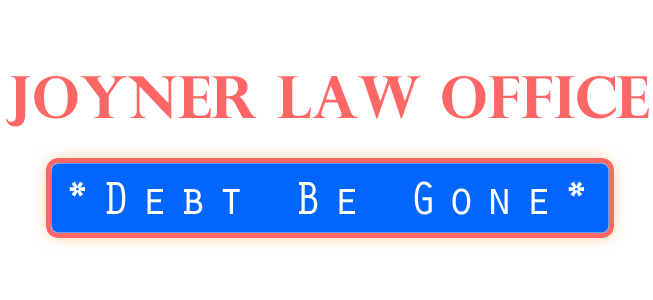In this blog post, we delve into the advantages of Chapter 13 bankruptcy for individuals in Illinois. We discuss how Chapter 13 bankruptcy can provide a fresh start for those struggling with overwhelming debt, allowing them to create a manageable repayment plan based on their income and expenses. We explore the benefits of Chapter 13 in terms of protecting assets, such as homes and cars, from foreclosure or repossession. Additionally, we highlight how Chapter 13 can halt creditor harassment and provide a sense of relief and protection. Through this comprehensive exploration, readers will gain a better understanding of the benefits Chapter 13 bankruptcy offers to residents of Illinois who are facing financial difficulties.
The Basics of Chapter 13 Bankruptcy
Chapter 13 bankruptcy is a type of bankruptcy that individuals may file. Chapter 13 bankruptcy hinges upon a repayment plan, which is integral to the process. Unlike Chapter 7 bankruptcy, which involves liquidating assets to pay off debt, Chapter 13 offers what can be thought of as a more structured approach to debt relief.
To be eligible for Chapter 13 bankruptcy, individuals must have a regular source of income and their unsecured debts must be below a certain threshold. Additionally, they must not have had a previous bankruptcy case dismissed within a certain timeframe.
During the Chapter 13 bankruptcy process, a bankruptcy trustee is appointed to oversee the case. The trustee is responsible for reviewing the repayment plan, collecting payments from the debtor, and distributing those payments to creditors.
The Benefits of Chapter 13 Bankruptcy
One of the key potential benefits of Chapter 13 bankruptcy is the opportunity to create a debt repayment plan. This plan allows individuals to pay off their debts over a period of three to five years, based on their income and expenses. By making regular payments according to the plan, individuals can gradually reduce their debt and regain control of their finances.
Another significant advantage of Chapter 13 is its ability to stop foreclosure proceedings. Through the bankruptcy process, individuals can sometimes prevent their homes from being foreclosed upon. This gives them the opportunity to catch up on missed mortgage payments and protect their most valuable asset.
Chapter 13 bankruptcy also provides protection for non-exempt assets. Non-exempt assets are those that could potentially be sold to repay creditors in a Chapter 7 bankruptcy. In Chapter 13, individuals can keep their non-exempt assets, such as a car or certain personal belongings, as long as they continue to make payments according to their plan.
Furthermore, Chapter 13 bankruptcy offers the potential for a discharge of remaining debts at the end of the repayment plan. This means that any remaining unsecured debts, such as credit card debt or medical bills, can be eliminated, providing individuals with a fresh start and the opportunity to rebuild their financial future.
The Process of Filing for Chapter 13 Bankruptcy
Filing for Chapter 13 bankruptcy involves several steps. It’s also often important to first consult with a bankruptcy attorney and discuss one’s options. Since bankruptcy can be a complex process, it can be extremely helpful to consult with a knowledgeable expert who can represent you in court if necessary and help you understand the most viable paths forward in your unique circumstances.
The first step is typically to gather all relevant financial information, including income, expenses, debts, and assets. This information will be used to create the repayment plan and complete the necessary forms.
Once the forms are completed, the individual or their attorney must file the bankruptcy petition with the appropriate bankruptcy court. This initiates the legal process and triggers what is known as the automatic stay. The automatic stay prevents creditors from taking any further collection actions against the debtor.
After filing the petition, the individual is required to attend a meeting of creditors, wherein the trustee and creditors can ask questions about the debtor's financial standing and the proposed repayment plan. Following the meeting of creditors, a confirmation hearing determines whether the repayment plan is feasible and meets the requirements of the bankruptcy code.
Working with an Experienced Bankruptcy Attorney
When navigating the Chapter 13 bankruptcy process, it is often crucial to work with an experienced bankruptcy attorney. Choosing the right attorney who specializes in bankruptcy law can be important.
An attorney's role in the process is to guide the individual through each step of the bankruptcy process, ensuring that all required forms are completed accurately and on time, and helping the client understand their situation. Additionally, an attorney can provide advice and representation during the meeting of creditors and confirmation hearings.
Life After Chapter 13 Bankruptcy
Once the Chapter 13 bankruptcy process is complete and the debts have been repaid or discharged, individuals can begin rebuilding their credit. Rebuilding credit takes time and effort, but it is possible to improve credit scores over time by making timely payments, keeping debt levels low, and using credit responsibly.
Financial management is crucial after Chapter 13 bankruptcy. By creating a budget, monitoring expenses, and saving money, individuals can avoid falling into the same financial troubles that led to bankruptcy in the first place. Seeking financial counseling or attending money management courses can also be beneficial in maintaining healthy financial habits.
While it may take some time, individuals who have successfully completed a Chapter 13 bankruptcy can eventually qualify for future borrowing. However, it is important to approach borrowing cautiously, ensuring that the new debt can be managed responsibly and within the individual's financial means.
Conclusion
While Chapter 13 bankruptcy isn’t the best path for everyone, Chapter 13 bankruptcy offers numerous potential benefits for some individuals in Illinois who are facing overwhelming debt. From providing a structured repayment plan to protecting assets and offering a fresh start, Chapter 13 can be a viable solution for some in financial distress.
In order to determine whether Chapter 13 or any type of bankruptcy might be right for you, it can be important to consult with a bankruptcy attorney. An experienced bankruptcy attorney in Illinois can help individuals in Illinois determine not only if bankruptcy is the right option for them, but—if so,---which chapter might be right for them. By understanding the process of filing for Chapter 13, working with an experienced bankruptcy attorney, and focusing on financial management after bankruptcy, individuals can sometimes regain control of their finances and begin to build a sustainable financial future.

